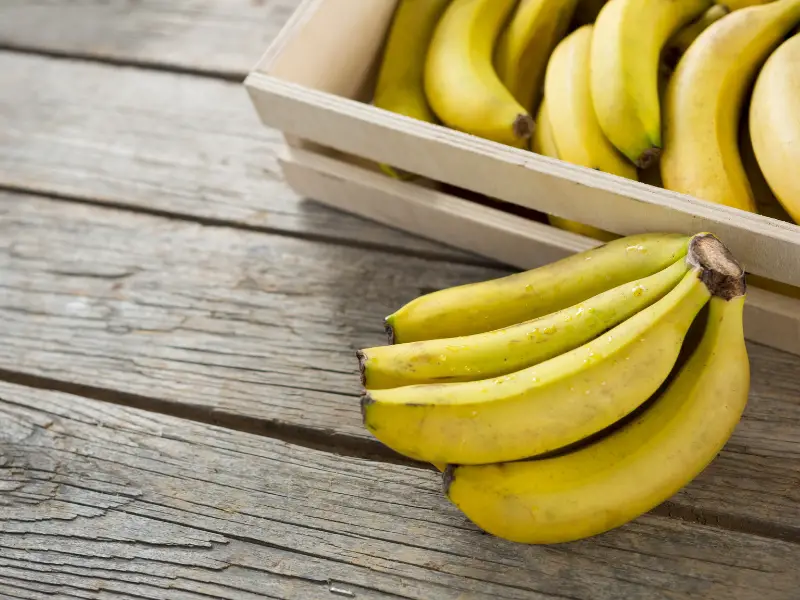It’s hard to find a more superstitious group of people than fishermen. Some of the most enduring superstitions have to do with whistling on a boat and bringing bananas on board.
So, why are bananas bad luck on a fishing boat? There are many theories why fishermen believe bananas are bad luck on a boat. The banana myth can be traced back to the 1700s when many ships carrying bananas were lost due to storms, uncharted reefs, or sandbars. Fishermen blame bananas for mechanical issues, bad weather, and not catching fish.
Keep reading to discover all reasons why bananas are believed to bring bad luck on fishing boats.
Origin of the Superstition
The banana superstition seems to date back to the 1700s when the Caribbean trade was growing. The legend has it that only bananas could be found floating in the wreckage when trade ships sailing from the Caribbean and Spain started to disappear.
Sailors of that time believed that bananas caused those boats to sink. Over time, the rumors about bananas spread, causing many fishermen and sailors to believe that bananas are bad luck.
Interestingly, some fishing charter crews take the “no bananas on boat” rule one step further by banning all banana-related products. If you’ve booked a trip on a fishing charter, you should reconsider bringing Banana Boat sunscreen, banana bread, muffins, or other banana-flavored desserts, clothes from the Banana Republic, or banana drinks and candy.
Whether you believe bananas are bad luck for fishing or not, don’t bring bananas on your next fishing charter. Just follow the captain’s rules and enjoy your day on the water.
Reasons Why Bananas Are Believed to be Bad Luck on Fishing Boats

Many commercial fishing charters have a banana ban on their fishing boats. In fact, many anglers believe that bringing bananas on a fishing boat will lead to fishless days, mechanical issues, or just bring bad luck.
Here are several reasons why bananas are believed to bring bad luck:
Fish Repellent
Bananas are naturally sweet and leave a sweet and sticky residue on one’s hands. It’s possible that bananas were banned from boats by fishermen who believed that the banana’s flavor acts as a fish repellent, scaring their catches.
Slippery Peels
Stepping on a slippery banana peel can cause serious injuries. It’s possible that ship crews afraid of potential accidents may have banned bananas on boats.
Lack of Catches
The boats transporting bananas had to travel quickly or risk delivering spoiled fruit. Because these boats traveled at very high speeds, fishermen on board didn’t have enough time to catch any fish. As a result, they started to blame bananas for the lack of catches.
Spoiled Fruit
In the 1700s, cargo ships stored hundreds of bananas in the same cargo hold with the rest of their rations. Bananas, like many other fruits, ripen because they produce ethylene gas.
This gas can cause other fruit to ripen faster and spoil more quickly than it would otherwise. Rotten fruit was probably a big concern for ships trying to turn a profit by transporting fresh fruit.
Other fruits that produce ethylene gas are tomatoes, apples, melons, peaches, avocados, pears, figs, nectarines, and plums.
Unwanted Passengers
Most fishermen are afraid of unwanted passengers like venomous spiders, snakes, and other critters, which could be found in crates with bananas.
Not all banana spiders are venomous spiders. But most would lurk in crates until they are boarded on ships, sometimes even laying eggs that would later hatch.
These critters would sometimes bite crew members, who would spend days on the sea without medical help. Those who heard tales of sailors being bitten by venomous snakes and spiders were hesitant to bring crates of bananas on board.
Although the cases of bitten boatmen weren’t widespread, the fear of bananas remained.
Fire
The ethylene gas from bananas causes fruits and vegetables to ripen faster, which speeds up the fermentation process. Merchants and sailors transporting goods from the Caribbean knew nothing about this new fruit.
Storing hundreds of bananas in crates in the cargo hold was a common practice in the 1700s. After some time in the cargo hold, the bananas and other fruit started to ferment, producing alcohol.
The highly flammable alcohol caused devastating fires that engulfed wooden ships in flames. Those lucky enough to escape the raging fire would watch the burning ship with a reinforced belief that bananas are bad luck on a boat.
Floating Bananas
Most people don’t know that bananas float on the water. So, when the fully loaded ships of years passed would sink, precious little would be left of them besides bananas.
Those coming across the site would discover the wreckage by the debris and floating bananas. This led many boatmen to believe that bananas were somehow responsible for the sunken ship.
Dangerous Cargo
The banana myth probably traces back to the peak of the Caribbean trade. At that time, many sunken, lost, or burned ships carried bananas to faraway destinations.
The fact that many ships transporting bananas were lost to the sea is another possible reason why bananas are considered to bring bad luck for boats and fishermen.
Conclusion
No bananas on board are one of the most popular fishing superstitions. Most commercial fishing charters have a no bananas allowed rule. So make sure you won’t pack any bananas or banana products on your next fishing charter trip.
Considering the number of stories and rumors shared by fishermen and sailors throughout history, many anglers are convinced that bananas on board are bad luck. Whether you’re superstitious or not, it’s probably best to eat a banana at home and pack some other fruit as a refreshing snack for the fishing trip.